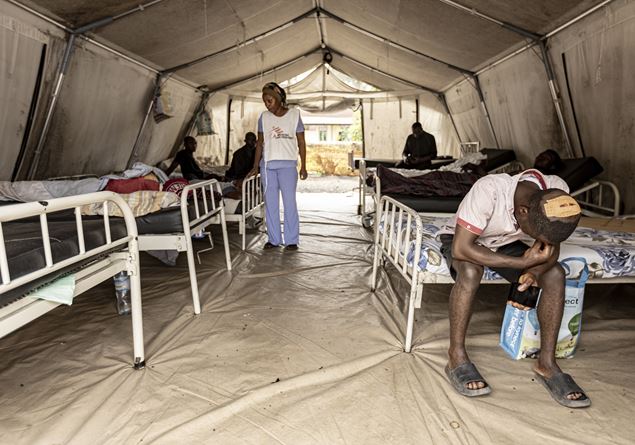
The famous “cold snap” in the stomach.
We know that the cold can be bad for your health, particularly when it is intense or prolonged: hypothermia, frostbite, respiratory illnesses or muscle and joint problems. But other symptoms can also be observed, such as stomach ache. “The cold can cause stomach pain due to several physiological mechanisms that occur in response to low temperatures, explains Hugo Desmorat, etiopath in Chilly-Mazarin (91). For example, exposure to cold acts as stress by stimulating the (sympathetic) nervous system, responsible for putting the body into action. This will limit the activity of the intestines. This slowdown can be more or less pleasant depending on the individual because of digestive sensitivity. This is similar to the mechanism that occurs during a stressful exam.”
Cold weather can also affect intestinal motility, slowing down the digestion process. This can lead to a buildup of gas and fluid in the gastrointestinal tract, which can cause abdominal discomfort, bloating, and pain. “There may also be digestive pain immediately after a cold episode. Blood rushes quickly into the stomach and organs to compensate for its slowing down, which can cause discomfort or even diarrhea. Prolonged exposure to cold can also cause blood vessels to constrict, reducing blood flow to certain parts of the body, including the abdominal area. This can lead to decreased blood flow to the stomach and intestines, which can cause abdominal pain.
Cold can also stimulate peripheral nerves in the skin and internal organs. “This nerve stimulation can trigger pain signals in the nervous system, causing a feeling of discomfort or pain in the stomach.” In response to cold, the body’s muscles, including the abdominal muscles, can contract involuntarily and cause pain. “Generally, we first feel tightness in the back and shoulders before feeling the cold on the stomach, explains Hugo Desmorat. Listening to these signs lets you know if you are covered enough. Muscles contracting in an attempt to produce heat is helpful, but when it affects the abdomen it can lead to digestive tension associated with cramping.’
To relieve stomach pain caused by cold, it is recommended to wear warm clothing, stay indoors in heated environments, drink hot, eat hot, etc. ‘Remember to protect your stomach by wearing layers to reduce heat loss from the body.’ Exercise also feels good: “Regular physical exercise helps improve blood circulation and reduce the impact of cold on the bodyrecalls our interlocutor. However, avoid excessively strenuous exercise in cold weather.” In general, taking steps to warm up and stay warm is essential to avoid the adverse effects of cold on the body. If you have any concerns or if symptoms persist, do not hesitate to consult a healthcare professional.






